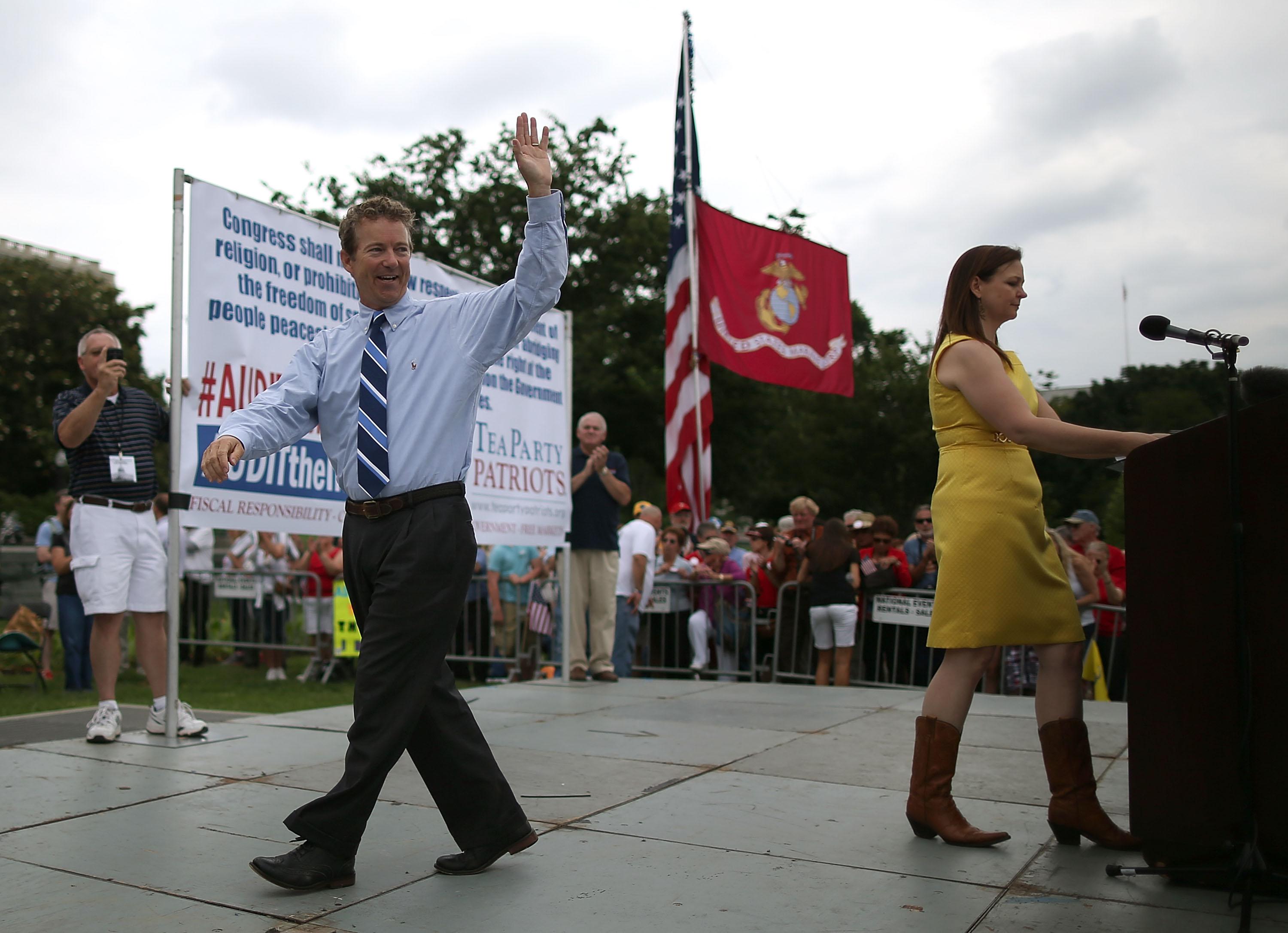Sen. Rand Paul spoke Thursday night at a $250-a-plate dinner hosted by the Competitive Enterprise Institute, a libertarian think tank profiled in these pages by Lydia DePillis in 2009. The event’s theme was James Bond (the title of a staff-made spoof video: “Capitalism Never Dies”), and the group’s president, Lawson Bader, sported a kilt in tribute to Sean Connery. Cracks at the IRS and NSA abounded, along with a general air of righteousness. Needless to say, the event raised more than $1 million to fight the FTC, FDA, FCC, and pretty much any other group with a three-letter acronym beginning with F.
The event’s emcee introduced Paul with a quote from the New Republic’s recent profile of the senator, poking fun at its assertion that Paul was “eccentric” for going to get his own coffee from the Capitol cafeteria. Paul, last seen speaking at Wednesday’s “Audit the IRS” rally, talked about how to change the GOP’s Image and its need to look more optimistic, less gloom-and-doom.
“We have to have a message of opportunity,” Paul said Thursday night. “We have to convey the message that you’re not a bad person because you’re taking government assistance.”
The speech was near-identical to this one Paul gave at a New Hampshire Republican Party dinner last month, including this money quote:
“We need to be like the rest of America,” Paul said. “We’re going to win when we look like America. We need to be white, we need to be brown, we need to be black, we need to be with tattoos, without tattoos, with ponytails, without ponytails, with beards, without.”
At the risk of #slatepitching myself into a corner, Paul may be the best hype man the Republican Party has at the moment, not in small part because he has a great sense of humor. Unlike Louisiana Gov. Bobby Jindal, Paul doesn’t feel the need to make zany claims about the Democratic agenda to appeal to his base. The zaniness is implied—Paul talks about the Department of Transportation like it’s the Ministry of Silly Walks.
Marco Rubio and Paul Ryan are on the “we need to care about poors too!” beat, but as Jamelle Bouie rightly points out, their message falls flat when confronted with substantive reforms. Paul’s no better on the pragmatic front, but unlike his wonkier colleagues, he’s not afraid to let that cognitive dissonance hang out.
